Pyrgos . . .
Pyrgos is the largest village of Tinos and is located in the northwestern part of the island, 23 kilometres from the town of Tinos, in the historic municipality of Panormos, known on Tinos as Exo Meri or Exo Meria. It is the main village of Panormos, which in the past was inhabited almost exclusively by Orthodox Christians, an administrative centre as the seat of the local municipality and an artistic centre, as it has produced some of the most important Greek artists. In 2015, the marble art of Tinian was included in the Unesco list of the most characteristic manifestations of the intangible cultural heritage of humanity and the entire village was declared an open museum. In Pyrgos there is a School of Fine Arts that continues the tradition of marble art with students from all over the world. When you arrive at the entrance of the village, the first thing you will see is the marble stall. As you walk around, you will see the Cathedral of Agios Nikolaos (1874), the cemetery with the famous tombstones of famous sculptors - you could call it an open-air sculpture gallery - the Museum of Marble Art, the Museum of Tinοs Artists, the Museum House of Giannoulis Chalepas and the marble fountain in the village square.
Historical information
The time when the settlement was founded is not known today. The name Pyrgos goes back to a tower that was built before the 16th century to fortify the area. This building is shown on a map from 1571. The village experienced great development in the 18th and 19th centuries, mainly due to two sectors: shipping and marble production. It developed into a leading art centre that produced many of the most important Greek artists. These include the sculptors Giannoulis Chalepas, Dimitrios Filippotis, Yannis Voulgaris, Loukas Doukas and the painter Nikiforos Lytras. Today there are marble workshops, galleries and the Pyrgos School of Fine Arts, which continues the tradition of marble with students from all over the world. The first graduates of the school go directly to the College of Fine Arts without taking an exam.
The settlement
Pyrgos is today a declared traditional settlement. It is located on the west side of the island, about 23 kilometres from the town of Tinos. It is a short distance from the coast and at an altitude of 130 metres. The settlement of Ormos Panormos is located two kilometres to the north. A characteristic feature of the settlement is the marble that adorns the façades of the houses (porticoes, lintels, doorways, perforated fanlights, columns, coats of arms, quatrefoils, etc.) and the marble buildings (busts, statues, fountains, bell towers, etc.). The main sights of the settlement are the house of Giannoulis Chalepas, the Museum of Tinian Artists, the Museum of Marble Art, the two main churches of the village (Agios Nikolaos and Agios Dimitrios) as well as the cemetery with important marble works and stone sculptures by local artists and the marble fountains in the village square. The village has a strong Cycladic flavour and is known as an open-air museum of folk art.
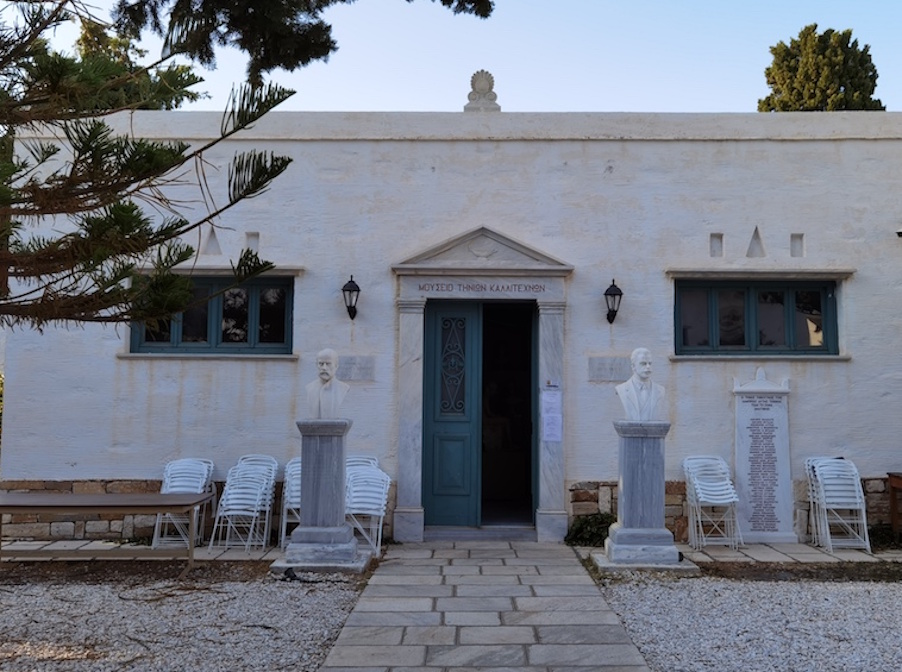 |
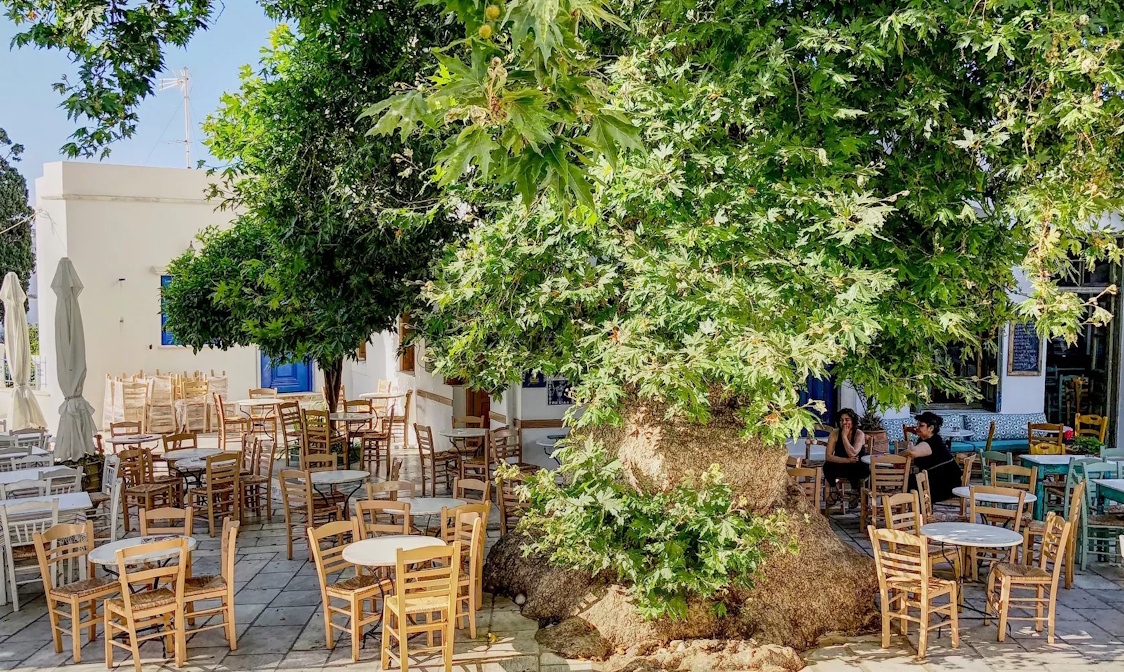 |
Left: Museum of the Artists of Tinos
Right: The beautiful village square of Pyrgos
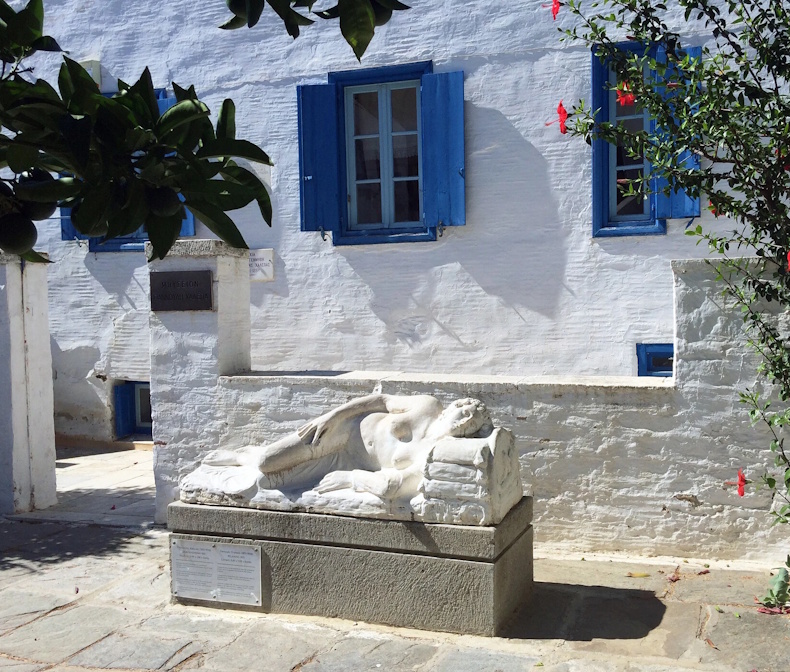 |
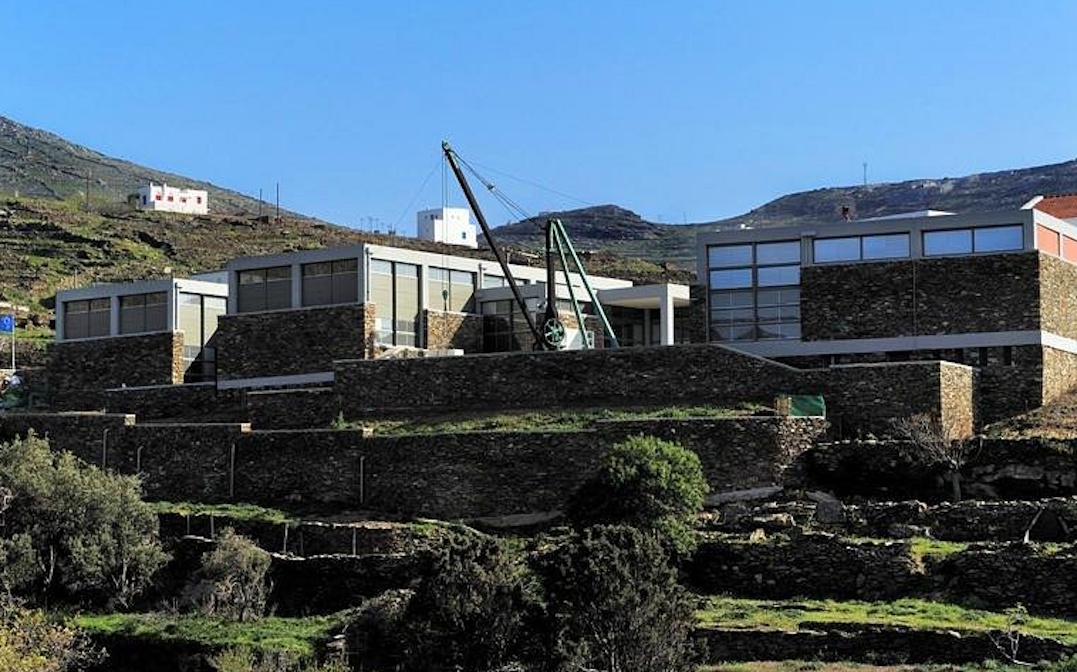 |
Left: The house of Giannoulis Chalepas
Right: The Museum of Marble Craft
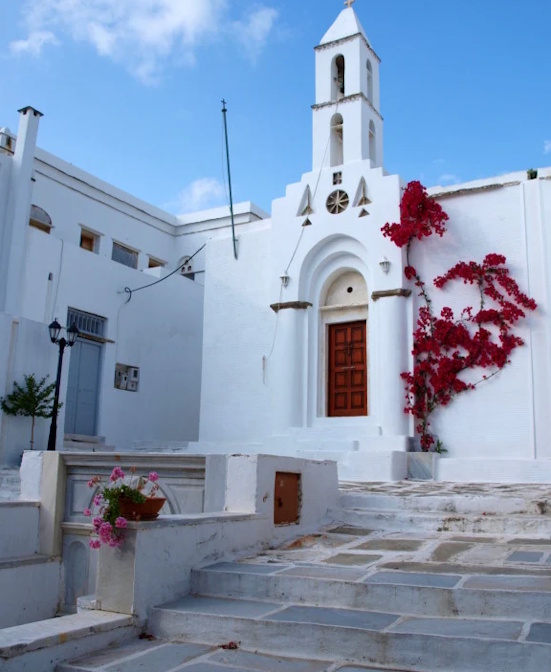 |
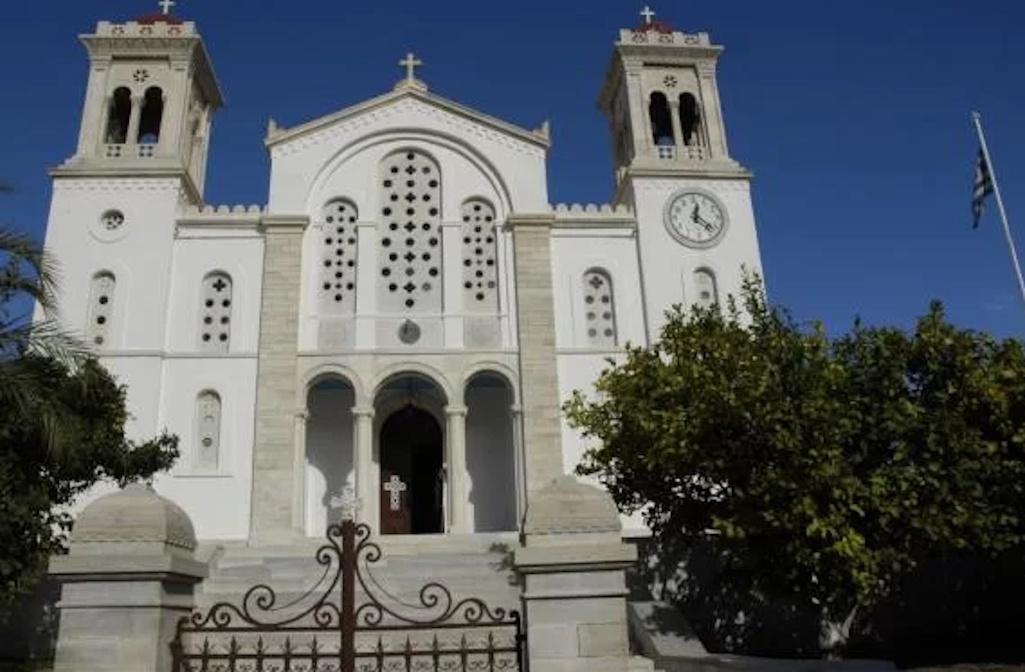 |
Left: Agios Nikolaos
Right: Agios Dimitrios
Persons from Pyrgos
The following came from Pyrgos:
- Nikiforos Lytras, one of the most important painters of modern Greece
- Giannoulis Chalepas, sculptor, considered the most important of modern Greece
- Dimitrios Filippotis, one of the most important sculptors of modern Greece
- Stratis Filippotis, author and publisher
- Georgios Despinis, archaeologist and researcher in the field of ancient Greek sculpture and architecture